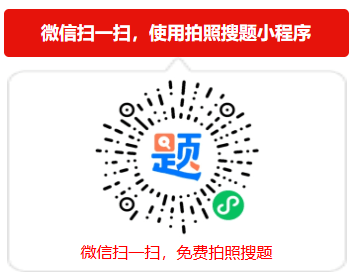判断题
Text A
Background Information
Mergers and
Acquisitions (abbreviated M&A) refers to the aspect of corporate strategy,
corporate finance and management dealing with the buying, selling and combining
of different companies that can aid, finance, or help a growing company in a
given industry grow rapidly without having to create another business
entity.
In business or economics a merger is a combination of
two companies into one larger company. Such actions are commonly voluntary and
involve stock swap or cash payment to the target. Stock swap is often used as it
allows the shareholders of the two companies to share the risk involved in the
deal. A merger can resemble a takeover but result in a new company name(often
combining the names of the original companies)and in new branding; in some
cases, terming the combination a "merger" rather than an acquisition is done
purely for political or marketing reasons.
An acquisition, also
known as a takeover or a buyout, is the buying of one company (the "target" )by
another. An acquisition may be friendly or hostile. In the former case, the
companies cooperate in negotiations; in the latter case, the takeover target is
unwilling to be bought or the target’s board has no prior knowledge of the
offer. Acquisition usually refers to a purchase of a smaller firm by a larger
one. Sometimes, however, a smaller firm will acquire management control of a
larger or longer established company and keep its name for the combined entity.
The acquisition process is very complex, with many dimensions influencing its
outcome.
The differences between mergers and acquisitions
relate mainly to.
◆ the relative size of the individual
companies in the business combination;
◆ ownership of the
combined business;
◆ management control of the combined
business.
Coke Bid for Juice Maker Turns Sour
The government
rejected Coca-Cola’s plan to acquire beverage maker China Huiyuan Juice Group
Ltd for $2.4 billion on Wednesday, citing the country’s anti-monopoly
law.
The acquisition by Coca-Cola, announced last September,
would have been the largest ever buyout of a Chinese company by a foreign
rival.
The planned takeover violates the provisions of the
Anti-Monopoly Law, the Ministry of Commerce (MOC) said in a statement, adding
that it would have restricted competition and harmed the domestic juice
industry.
"If the acquisition went into effect, Coca-Cola was
very likely to reach a dominant position in the domestic market and consumers
may have had to accept a higher price fixed by the company as they would not
have much choice," the statement said.
The MOC launched an
anti-trust investigation on Nov 11 to determine whether the acquisition would
harm other rivals, consumer rights or technological innovation.
The bid was the first major deal to test the Anti-Monopoly Law, which took
effect on Aug 1 last year. If passed, the deal would have been Coca-Cola’s
largest overseas acquisition and the company would have been able to expand its
dominant position in the carbonated drinks market to the juice market.
The ministry said that Coca-Cola and Huiyuan are major brands in the juice
market, and therefore, the combination would have restricted competition in the
industry and made it more difficult for other players to enter the
sector.
The ministry said the deal would also have squeezed
development space for other small- and medium-sized enterprises, and is not good
for the development of the country’s juice industry.
Huiyuan
said yesterday that it respects the decision made by the ministry, and
production would continue as normal. The company’s share dived 19.24 percent to
HK$8.30 yesterday before trading was suspended shortly after the market opened
in the morning.
Muhtar Kent, president and chief executive
officer of Coca-Cola, said: "We are disappointed, but we also respect the MOC
decision."
He said the company had put a tremendous effort into
providing all the relevant materials to the MOC to ensure that they had all the
information available and understood the transaction.
"We were
looking forward to working with the excellent Huiyuan team to stimulate new
growth for the Huiyuan brand."
He said the company will now
focus all of its energies and expertise on growing existing brands and
continuing to innovate with new brands, including in the juice
segment.
Huang Wei, beverage analyst at China Jianyin Investment
Securities, said: "The ministry’s decision is not surprising. But it’s not good
for Huiyuan, whose market share will probably shrink as international players
such as Coca-Cola invest more in the juice market."
Coca-Cola’s
offer to buy the Hong-Kong listed company was seen as a major strategic move to
tap China’s fast growing juice market.
While the world’s largest
soft drink manufacturer dominates the carbonate market in China, its share in
the juice market is relatively small.
On the other hand, Huiyuan
is the largest juice beverage maker in China, with over 45 percent of the pure
juice market in the country. It also controls more than a tenth of the Chinese
fruit and vegetable juice market that grew 15 percent last year to $2 billion.
Coca-Cola has a 9.7 percent market share and dominates in diluted
juices.
China is Coca-Cola’s fourth-largest market and a key
battleground with rival Pepsi Co. Inc.
Huiyuan’s founders and
major shareholders had endorsed the sale as a way for the company to improve
product development and marketing.
An MOC official said
Coca-Cola had tried to address the negative effects on competition after it
sought government approval for the deal in November, but its efforts did not
meet the requirements of regulations.
"It is only an isolated
case, and it does not suggest any change in China’s policy on foreign
investors," the official said.
The MOC said it has investigated
29 proposed acquisitions under the anti-monopoly law since August and approved
24.
ExercisesThe ministry’s decision is good for Huiyuan’s development in the juice market.
【参考答案】
错误
(↓↓↓ 点击‘点击查看答案’看答案解析 ↓↓↓)
点击查看答案&解析
相关考题



